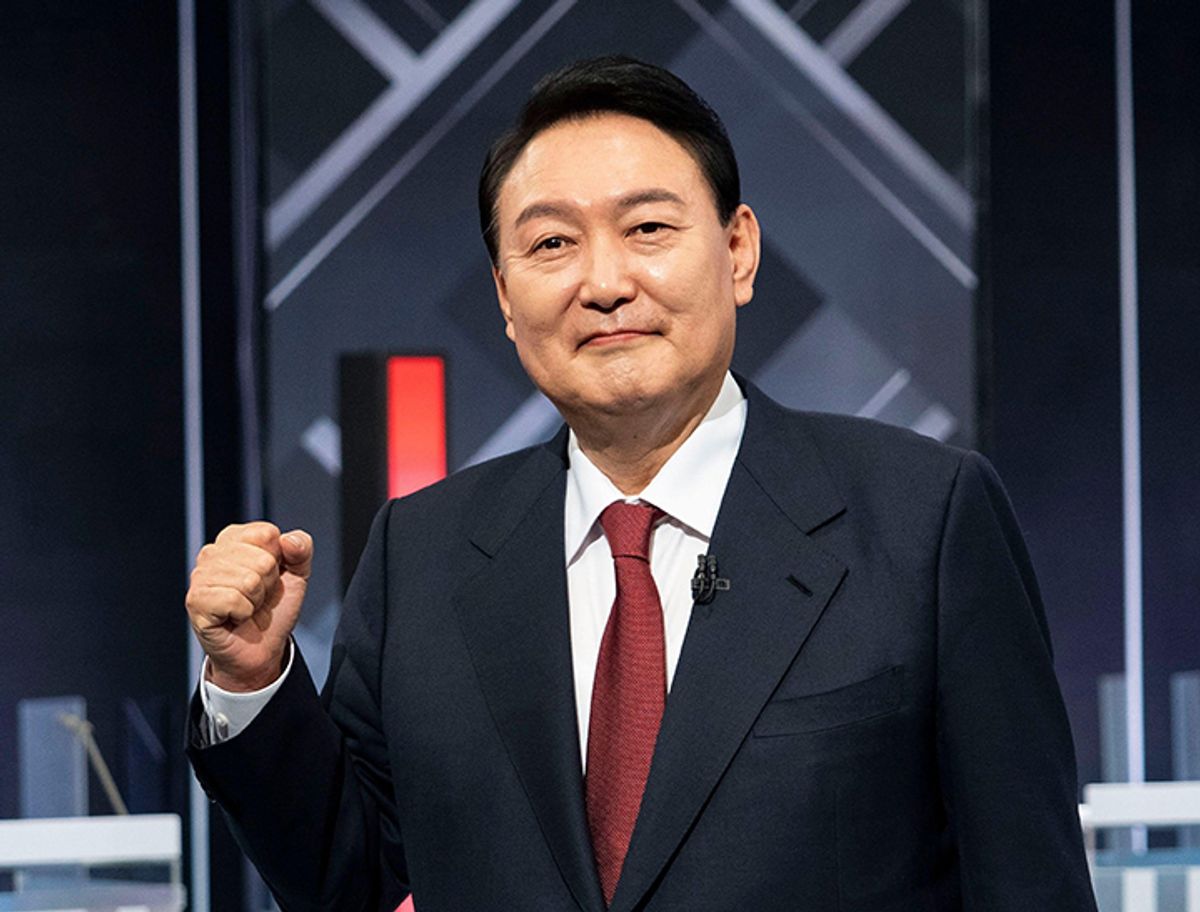Conservative former prosecutor Yoon Suk-yeol will be South Korea’s next president, for a five year term. His narrow victory earlier this month followed a campaign that pandered to widening gender and generational fissures in Korean society but also pledged more support for art and culture. The societal divisions will echo in the art world even as the international profile of Korean art rises ahead of the launch of the Frieze art fair in Seoul and the recent influx of foreign galleries.
Yoon, from the People Power Party (PPP), won with 48.56% of the electorate, beating out Lee Jae-myung from incumbent Moon Jae-in’s Democratic Party, who garnered 47.83%. In what many call Korea’s “incel election”, Yoon cultivated a base of disaffected young men who blame growing competition from women for their economic stagnation—a strategy formulated by the young Harvard-educated PPP leader and “men’s rights” activist Lee Jun-seok. Yoon drew around two-thirds of Korean male voters in their 20s, but one-third of women that age. He pledges to dissolve the national Ministry of Gender Equality and Family upon taking office in May, and asserts that Korea has no structural gender discrimination, despite having a gender pay gap of 31.5%, the highest among OECD nations. While the Korean art world has a strong feminist streak, it also grapples with society’s entrenched patriarchal parochialism.
“As an artist, the most worrying thing about Yoon’s policies is that the current progress of the women's rights and gender equality movements is framed as a conflict between genders,” says Choi In-sook, a photographer and the president of the Korean Women's Photographers Association. “He created a misogynistic stance during the election in order to ultimately restore the patriarchal, capital-dominated society favoured by the wealthy,” with “conglomerate-friendly policies.” He has also promised increased militancy towards North Korea.
The election was held amongst record high infection levels of the Omicron variant of Covid-19. After comparatively low rates in 2021 through January, South Korea’s infections have risen to the world’s highest levels, peaking at 1.4 million new cases on 17 March, with a current seven-day average daily new case load of 347,077.
Shielded by Korea’s 91.8% vaccine rate, deaths peaked on 18 March at 1,049, and the current seven-day average for fatalities is 522. “Now entering a third year, the coronavirus has not only impacted individual economic woes but also exacerbated emotional isolation, as the stress of disconnection and alienation from others damaged social communication structures.
"I think jealousy and division are supplanting solidarity, respect, and empathy for others, making the disparity between genders and generations wider,” Choi says. The tight campaign saw unprecedented levels of mudslinging from both sides, including corruption allegations and comparisons with Adolf Hitler.
Formerly a prosecutor general, Yoon’s win also represents the younger generation’s repudiation of the long-ruling political class who as student activists ushered in South Korea’s 1992 democratic revolution. “Yoon’s electoral strategy, which more than any prior election encouraged insults, slander, and sexism, would not have been tolerated by the public if not for the Covid crisis,” Choi says. “This election, held mid-crisis, polarised genders, regions, and generations instead of debating how to address the Covid outbreak and longer-term social problems.”
The new government is expected to be heavily involved in the arts, starting with Yoon’s unpopular plan to convert the presidential palace, known as the Blue House, into a public space or museum, moving executive operations to the downtown cultural hub of Gwanghwamun.
“The core of the new government's cultural policy is to promote K-culture at the international level by strengthening the competitiveness of Korean culture and to create a sustainable system at the national level to support artists and creators with financial difficulties,” says Henna Yeonhwa Joo, an associate professor of arts and cultural management at Hongik University and the former executive director of Arario Gallery. Yoon promises to create half a million jobs in the Korean cultural industry, and to shore up protection of cultural relics.
Yoon’s wife Kim Kun-hee is the president and chief executive officer of Covana Contents, an exhibition company she founded in 2007 that has organised shows for artists like Van Gogh, Giacometti, Chagall and Rothko. Kim is under investigation from the anti-corruption authority for charges of accepting bribes disguised as art sponsorships in 2019 and of stock manipulation. She majored in painting at Kyonggi University and has a master’s degree in art education and a doctorate in digital design. Given Kim’s background, Joo says, “we can expect the presidential couple to have a personal interest in art. While this in itself is a very positive thing, the presidential couple should be wary of being an inadvertent player in the art world due to their social status and power.”
Joo hopes President-elect Yoon will pragmatically support policies “expanding Korea’s art market size in order to secure its competitiveness in the international art market,” such as through the “wise and timely implementation” of an art transfer tax. “Given its pledges and visions about serving the public, the new government must particularly take note of the recent entry into Korea of international galleries such as Pace, Ropac, Lehman Maupin, Konig and Gladstone and the opening of the top level art fair, Freeze Seoul; it could provide active support at the government level to elevate Seoul to one of the art capitals of the world.”


